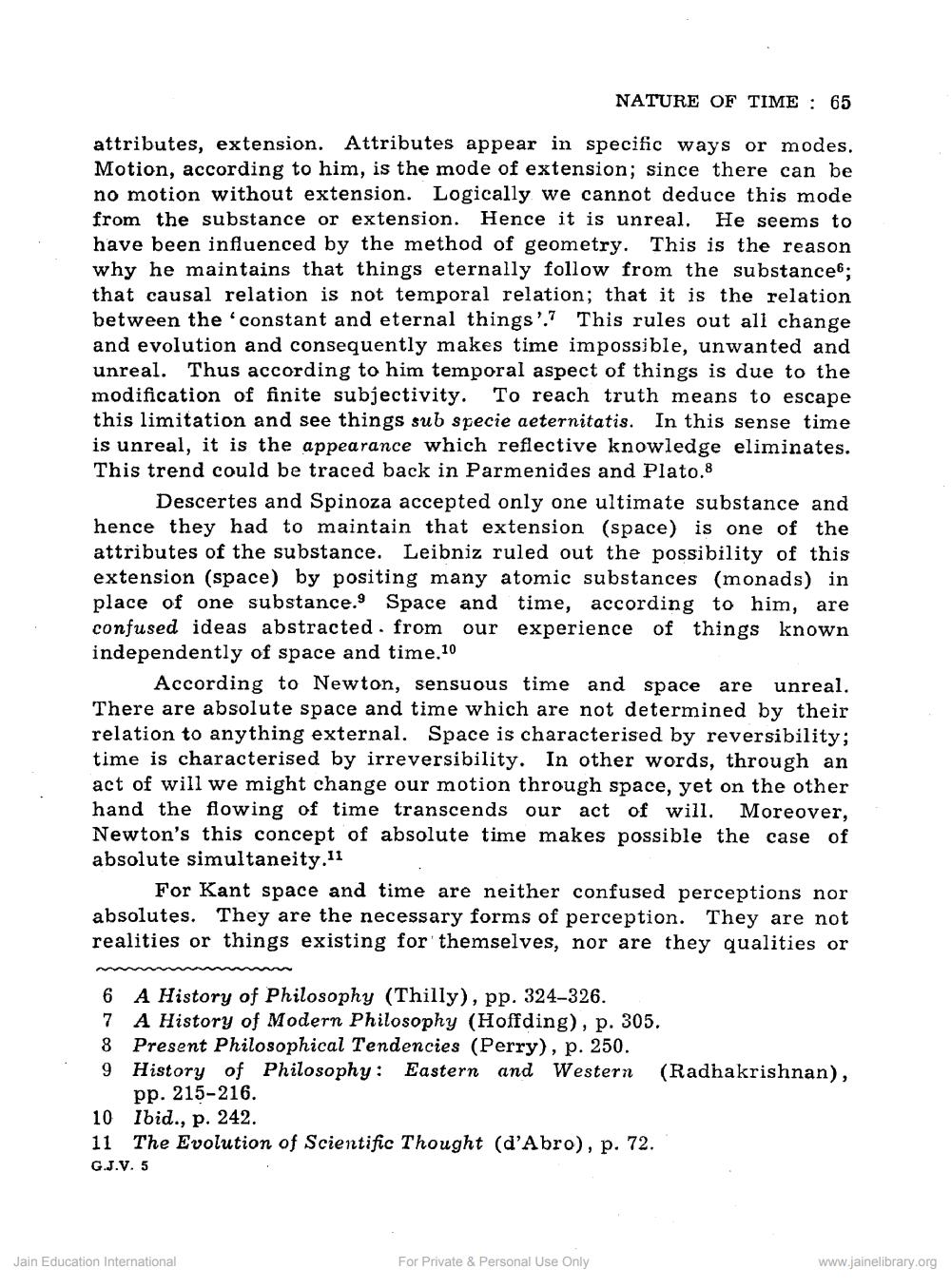Book Title: Nature of Time Author(s): Nagin J Shah Publisher: Z_Mahavir_Jain_Vidyalay_Suvarna_Mahotsav_Granth_Part_1_012002.pdf and Mahavir_Jain_Vidyalay_Suvarna_ View full book textPage 3
________________ NATURE OF TIME : 65 attributes, extension. Attributes appear in specific ways or modes. Motion, according to him, is the mode of extension; since there can be no motion without extension. Logically we cannot deduce this mode from the substance or extension. Hence it is unreal. He seems to have been influenced by the method of geometry. This is the reason why he maintains that things eternally follow from the substance ; that causal relation is not temporal relation; that it is the relation between the constant and eternal things'. This rules out all change and evolution and consequently makes time impossible, unwanted and unreal. Thus according to him temporal aspect of things is due to the modification of finite subjectivity. To reach truth means to escape this limitation and see things sub specie aeternitatis. In this sense time is unreal, it is the appearance which reflective knowledge eliminates. This trend could be traced back in Parmenides and Plato.8 Descertes and Spinoza accepted only one ultimate substance and hence they had to maintain that extension (space) is one of the attributes of the substance. Leibniz ruled out the possibility of this extension (space) by positing many atomic substances (monads) in place of one substance.9 Space and time, according to him, are confused ideas abstracted. from our experience of things known independently of space and time 10 According to Newton, sensuous time and space are unreal. There are absolute space and time which are not determined by their relation to anything external. Space is characterised by reversibility; time is characterised by irreversibility. In other words, through an act of will we might change our motion through space, yet on the other hand the flowing of time transcends our act of will. Moreover, Newton's this concept of absolute time makes possible the case of absolute simultaneity. 11 For Kant space and time are neither confused perceptions nor absolutes. They are the necessary forms of perception. They are not realities or things existing for themselves, nor are they qualities or 6 A History of Philosophy (Thilly), pp. 324-326. 7 A History of Modern Philosophy (Hoffding), p. 305. 8 Present Philosophical Tendencies (Perry), p. 250. 9 History of Philosophy: Eastern and Western (Radhakrishnan), pp. 215-216. 10 Ibid., p. 242. 11 The Evolution of Scientific Thought (d'Abro), p. 72. G.J.V. 5 Jain Education International For Private & Personal Use Only www.jainelibrary.orgPage Navigation
1 2 3 4 5 6 7 8 9 10 11 12 13 14 15 16 17 18 19 20 21 22 23 24 25
